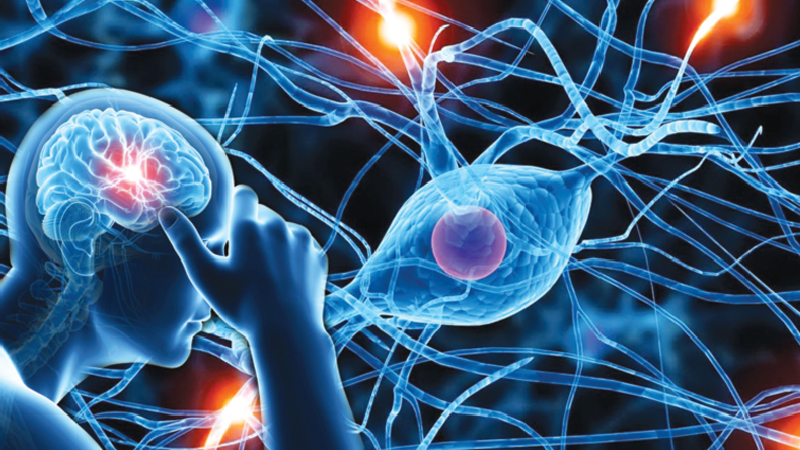Neurological disorders are conditions that affect the nervous system, including the brain, spinal cord, nerves and can cause a variety of symptoms, including muscle weakness, tremors, seizures, and cognitive impairment.
In Ayurveda, neurological disorders are classified under the category of Vata disorders. Vata is one of the three doshas, or energies, that make up the human body. It is responsible for movement and communication in the body, and an imbalance in Vata can lead to various neurological disorders.
Shashvat Ayurveda offers a holistic approach to treating neurological disorders. Ayurvedic treatment for neurological disorders typically involves a combination of lifestyle changes, herbal remedies, and dietary modifications.. Ayurvedic treatments for these disorders are aimed at restoring the balance of Vata in the body.
Herbal remedies are also an important aspect of Ayurvedic treatment for neurological disorders. Some of the commonly used herbs include Brahmi, Ashwagandha, Shankhapushpi, and Jatamansi. These herbs are believed to have a calming effect on the nervous system, which can help reduce the symptoms of neurological disorders.
Dietary modifications are also an important aspect of Ayurvedic treatment for neurological disorders. A diet that is rich in fruits, vegetables, and whole grains can help promote overall health and wellbeing, and may help reduce the risk of developing neurological disorders.
In addition to these treatments, Ayurvedic practitioners may also recommend meditation and yoga as a way to promote relaxation and reduce stress. Stress is believed to be a major contributing factor to many neurological disorders, and reducing stress levels can help alleviate the symptoms of these conditions.
One of the key components of Ayurvedic treatment is Panchakarma, which is a detoxification and rejuvenation process that involves the use of herbal oils, massages, and other techniques to remove toxins from the body. In the context of neurological disorders, Panchakarma therapies are used to address the underlying causes of the condition, which may include imbalances in the Vata dosha.
Vamana therapy is used to treat conditions that are caused by an excess of Kapha, one of the other doshas. Kapha is responsible for stability and lubrication in the body, and an excess of Kapha can lead to conditions such as epilepsy and Parkinson’s disease. Vamana therapy involves the administration of medicated emetics to induce vomiting, which helps eliminate excess Kapha from the body.
Virechana therapy is used to treat conditions that are caused by an excess of Pitta, another dosha. Pitta is responsible for metabolism and digestion, and an excess of Pitta can lead to conditions such as migraines and epilepsy. Virechana therapy involves the administration of purgatives to eliminate excess Pitta from the body.
Basti therapy involves the administration of medicated enemas to address imbalances in the Vata dosha. Basti therapy is particularly effective in treating conditions such as multiple sclerosis, which are caused by an excess of Vata. The enemas are made using medicated oils, herbs, and other substances, which help soothe and nourish the nervous system.
Nasya therapy involves the administration of medicated oils or powders into the nostrils to treat conditions such as migraines and epilepsy. The oils and powders are believed to help balance the doshas in the head region, which can help alleviate the symptoms of these conditions.
Raktamokshana therapy involves the removal of small amounts of blood from the body to treat conditions such as migraines and epilepsy. The removal of blood is believed to help balance the doshas and improve circulation, which can help alleviate the symptoms of these conditions.
In conclusion, Panchakarma therapies are an important aspect of Ayurvedic treatment for neurological disorders. These therapies help address the underlying imbalances in the doshas that can lead to these conditions, and they offer a holistic approach to restoring balance to the body, mind, and spirit. If you or someone you know is suffering from a neurological disorder, consider consulting with an Ayurvedic practitioner to explore the benefits of Panchakarma therapies.
In conclusion, there are many different types of neurological disorders, each with its own set of symptoms and management approaches. Shashvat Ayurveda offers a holistic approach to treating neurological disorders that is based on the principles of restoring balance to the body, mind, and spirit.
If you or someone you know is suffering from a neurological disorder, consider consulting with our Ayurvedic practitioner to explore the benefits of this ancient system of medicine.
Here are some common types of neurological disorders treatment at Shashvat Ayurveda
Alzheimer’s Disease, Amyotrophic Lateral Sclerosis (ALS), Ataxia, Bell’s Palsy, Brain Tumors, Cerebral Aneurysm, Epilepsy and Seizures, Guillain-Barré Syndrome, Hydrocephalus, Spinal cord disorders -Lumbar Disk Disease (Herniated Disk), Meningitis, Multiple Sclerosis,
Muscular Dystrophy, Neurocutaneous Syndromes, Parkinson’s Disease, Cluster Headaches, Tension Headaches, Migraine Headaches, Encephalitis, Muscular Dystrophy and Neuromuscular Diseases, Myasthenia Gravis, Rehabilitation for Stroke




